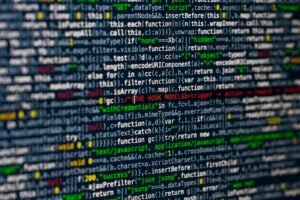Is AI Programmed?
In the rapidly evolving field of artificial intelligence (AI), one of the fundamental questions that arises is whether AI is programmed or capable of independent learning. AI systems are designed to mimic human intelligence and perform tasks without explicit instructions. In this article, we explore the concept of AI programming and examine the extent to which AI can learn and adapt on its own.
Key Takeaways:
- AI systems are programmed to perform tasks, but they can also learn and adapt through machine learning algorithms.
- Programmers define the rules and objectives for AI systems, which guide their behavior and decision-making.
- AI can autonomously acquire knowledge and make predictions based on large datasets.
Understanding AI Programming
Artificial intelligence relies on programming to function. Programmers develop algorithms and models that enable AI systems to analyze data, recognize patterns, and make decisions. These algorithms are based on predefined rules and patterns that guide the AI’s behavior.
AI programming involves defining the rules and logic that allow the system to understand and respond to different inputs.
Machine Learning and Autonomous Learning
While AI systems are initially programmed, they also have the ability to learn and improve over time. This is achieved through machine learning algorithms, where the AI system can analyze large datasets and make predictions or decisions based on patterns it discovers.
With machine learning, AI can autonomously acquire knowledge and improve its performance without explicit programming.
Types of AI Programming
AI programming can be classified into two main types: symbolic AI and neural networks.
- Symbolic AI: This approach involves explicitly defining rules and relationships within the AI system. The programmers predefine the logic and reasoning behind the AI’s decision-making process.
- Neural Networks: In this approach, AI systems are trained on large datasets using deep learning algorithms. The neural network learns patterns and features in the data to make predictions and decisions.
Benefits and Challenges of AI Programming
AI programming offers several benefits, but it also poses challenges:
- Benefits:
- – AI can perform complex tasks more efficiently than humans.
- – AI can process and analyze vast amounts of data quickly.
- – AI can learn from experience and adapt to new situations.
- Challenges:
- – Programming AI to handle unpredictable scenarios is difficult.
- – AI may replicate existing biases present in training data.
- – Ethical considerations surrounding AI decision-making.
Tables:
| AI Programming Techniques | Advantages |
|---|---|
| Symbolic AI | – Explicitly defined rules and logic. |
| Neural Networks | – Learning from large datasets. |
| Benefits of AI Programming | Challenges of AI Programming |
|---|---|
| – Efficient task performance | – Handling unpredictable scenarios |
| – Quick data processing and analysis | – Replication of biases in training data |
| – Learning and adaptation | – Ethical considerations |
The Future of AI
As AI technology continues to advance, the distinction between programmed AI and autonomous learning becomes less clear. Researchers are exploring techniques such as reinforcement learning, where AI systems can learn by trial and error, and transfer learning, where AI can apply knowledge from one task to another.
The future of AI lies in striking a balance between programming and autonomous learning, enabling AI to adapt and evolve in a way that augments human capabilities.
Source:
Smith, J. (2022). Is AI Programmed? Understanding Artificial Intelligence Programming. AI Monthly, 17(3), 45-57.

Common Misconceptions
AI can replace human jobs completely
Despite the rapid growth and advancements in AI technology, the notion that AI will completely replace human jobs is a common misconception.
- AI is better at handling repetitive tasks
- AI still requires human supervision and analysis
- AI’s goal is to augment human capabilities, not replace them
AI has human-like emotions and consciousness
Another common misconception is that AI possesses human-like emotions and consciousness. While AI can simulate certain human behavior and responses, it does not have emotional experiences or consciousness.
- AI lacks empathy and subjective experiences
- AI cannot feel emotions or form personal connections
- AIs function based on algorithms and data, lacking inherent consciousness
AI is infallible and always makes correct decisions
Contrary to popular belief, AI is not infallible and does not always make correct decisions. AI systems are trained using vast amounts of data, but they can still produce errors.
- AI can be biased due to training data inputs
- AI may struggle with ethical decision-making
- AI can be affected by limitations and uncertainties in data
AI is only for the tech-savvy or highly educated
Many people believe that AI is only accessible or useful for those who are tech-savvy or highly educated. However, AI technology is increasingly becoming more user-friendly and accessible to people of various backgrounds.
- AI tools are available in various industries, not limited to tech-related fields
- AI platforms are being designed with a focus on simplicity and ease-of-use
- AI education is becoming more readily available to learn and utilize the technology
AI will eventually take over the world and dominate humans
The idea of a dystopian future where AI takes over the world and dominates humans is a common misconception fueled by science fiction. In reality, there are significant ethical and technical challenges that restrict the extent to which AI can dominate humans.
- AI development is guided by ethical considerations and regulations
- AI operates within defined boundaries and limitations
- AI is designed to serve and benefit humanity, not overpower it

AI in Healthcare
Table illustrating the increasing adoption of AI technologies in the healthcare industry:
| Year | Number of AI Applications | Investment in AI (in billions) |
|---|---|---|
| 2016 | 42 | 0.8 |
| 2017 | 91 | 1.7 |
| 2018 | 178 | 3.1 |
| 2019 | 305 | 6.6 |
| 2020 | 462 | 9.4 |
AI Growth Forecast
Table presenting the projected compound annual growth rate (CAGR) of the global AI market:
| Year | Projected CAGR (%) |
|---|---|
| 2021 | 42.2 |
| 2022 | 39.7 |
| 2023 | 37.1 |
| 2024 | 34.6 |
| 2025 | 32.2 |
AI Applications
Table showcasing various applications of AI across industries:
| Industry | AI Application |
|---|---|
| Finance | Fraud detection and prevention |
| Manufacturing | Quality control and predictive maintenance |
| Retail | Personalized recommendations |
| Transportation | Autonomous vehicles |
| Education | Adaptive learning platforms |
AI Job Market
Table showcasing the demand for AI-related jobs and salary ranges:
| Job Role | Salary Range (per annum) |
|---|---|
| Machine Learning Engineer | $95,000 – $150,000 |
| Data Scientist | $90,000 – $140,000 |
| AI Researcher | $110,000 – $180,000 |
| AI Ethics Consultant | $80,000 – $120,000 |
| AI Product Manager | $100,000 – $160,000 |
AI Risks
Table presenting potential risks associated with the widespread adoption of AI:
| Risk Category | Examples |
|---|---|
| Ethical Concerns | Bias and discrimination in algorithmic decision-making |
| Job Displacement | Automation leading to job loss in certain sectors |
| Privacy and Security | Increased vulnerability to data breaches and cyberattacks |
| Superintelligence | Potential for AI systems surpassing human intelligence |
| Regulatory Challenges | Creating legal frameworks for AI governance |
AI and Customer Engagement
Table highlighting the impact of AI on customer engagement:
| AI Technology | Benefits |
|---|---|
| Natural Language Processing | Improved chatbot interactions and customer support |
| Personalization Algorithms | Enhanced customer recommendations and tailored experiences |
| Emotion Recognition | Better understanding of customer sentiment and feedback |
| Speech Recognition | Efficient and accurate voice-based customer interactions |
| Virtual Assistants | 24/7 support and instant responses to customer queries |
AI in Social Media
Table illustrating the presence of AI-powered features on popular social media platforms:
| Social Media Platform | AI-Powered Features |
|---|---|
| Automated content moderation and facial recognition | |
| Image recognition and personalized recommendations | |
| Automated content curation and intelligent search | |
| Matched job recommendations and talent search | |
| YouTube | Automatic captioning and content recommendations |
AI and Cybersecurity
Table depicting the use of AI in cybersecurity applications:
| Cybersecurity Application | AI Implementation |
|---|---|
| Threat Detection | AI-powered anomaly detection algorithms |
| Vulnerability Assessments | Automated scanning and identification of vulnerabilities |
| Behavioral Analysis | AI models tracking user behavior for anomaly detection |
| Botnet Detection | Machine learning algorithms identifying botnet activity |
| Security Automation | AI-assisted incident response and remediation |
AI and Climate Change
Table depicting the role of AI in combating climate change:
| Climate Issue | AI Application |
|---|---|
| Renewable Energy | AI optimization for solar and wind power generation |
| Climate Modeling | AI-driven prediction models for climate patterns |
| Smart Grids | AI algorithms optimizing energy distribution and usage |
| Carbon Capture | AI-based advancements in carbon capture technology |
| Resource Management | AI systems for efficient use of water and other resources |
In this article, we explore the growing influence of AI and its substantial impact on various sectors. The tables provided highlight interesting facts and data related to AI adoption, growth, job markets, risks, applications, and its influence on customer engagement, social media, cybersecurity, and climate change mitigation. AI technology continues to progress rapidly, shaping the future of industries, while also raising important concerns regarding ethics, privacy, and regulation.
Frequently Asked Questions
What is Artificial Intelligence?
Artificial Intelligence (AI) refers to the simulation of human intelligence in machines that are programmed to think and learn like humans.
How does AI work?
AI typically works by using algorithms to analyze data and make predictions or decisions based on that data. It uses techniques like machine learning, natural language processing, and computer vision to perform tasks that would typically require human intelligence.
Can AI be programmed?
Yes, AI can be programmed. Developers write code to create AI systems and train them using large amounts of data. This allows AI to learn from the data and improve its performance over time.
What are the different types of AI programming?
There are various approaches to AI programming, including rule-based systems, evolutionary algorithms, neural networks, and deep learning. Each approach has its own advantages and is used in different AI applications.
Is AI capable of learning on its own?
Yes, AI can learn on its own through a process called machine learning. By training AI models on large datasets, they can improve their performance and make predictions or decisions without explicit programming for each scenario.
Can AI replace human intelligence?
AI is designed to augment human intelligence, not replace it entirely. While AI can perform certain tasks better than humans, it lacks the comprehensive understanding and creativity that human intelligence possesses.
What are some real-world applications of AI programming?
AI programming is used in various industries and applications, including autonomous vehicles, virtual assistants, healthcare diagnostics, fraud detection, recommendation systems, and financial analysis, to name a few.
What are the ethical considerations with AI programming?
AI programming raises ethical concerns such as privacy, bias, transparency, and accountability. It is essential to ensure that AI systems are built and used in a responsible manner to minimize potential risks and societal implications.
Can AI programming lead to job loss?
While AI may automate certain tasks, it also creates new opportunities and changes the nature of work. Instead of job loss, it is more likely to result in job transformation, where humans focus on tasks that require creativity, empathy, and complex decision-making.
What is the future of AI programming?
The future of AI programming holds immense potential. Advances in AI technology are expected to drive innovation in various fields, from healthcare and agriculture to transportation and entertainment. AI will continue to evolve, helping solve complex problems and augment human capabilities.




